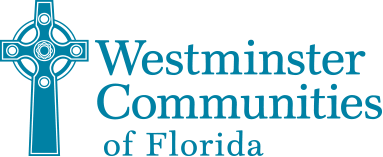Westminster St. Augustine resident Sharon Piety-Nowell retired from the field of education after a remarkable 47-year career. Starting as a second grade teacher, she gained extensive experience in various roles, including elementary school principal, course evaluator for the Federal Aviation Administration, and holding multiple leadership positions at Bethune-Cookman University in Daytona Beach, Florida. After 15 years of dedicated service, she retired as Dean of the university.
“I didn’t really plan any of that. I didn’t have career goals aside from teaching second grade,” Sharon said. “I had opportunities that I accepted and I think that’s one of the things that’s really important to nurture in young people starting out in the career today is to nurture their willingness to take risks and opportunities.”
In honor of Women’s History Month, Mrs. Piety-Nowell shared invaluable insights from her extensive career in education. With a wealth of experience under her belt, she generously offered advice and tips for aspiring women aspiring to pursue a career in this field.
How do you feel that the landscape in your field has changed for women who are wanting to pursue a similar role/position?
I think that one way the field has changed is that there are more opportunities available for advancement professionally. Clearly women are being promoted to those higher levels of the professional ladder, however I still think that the academic institutional culture is still a patriarchal system and men still receive higher respect and pay, even though clearly in the field of education, there are more women than men.
What’s interesting is most of the structure in education, whether its K-12 systems or college levels, are controlled by boards – boards of trustees, boards of directors, school boards – and those are mostly men, and that effects the entire culture then. I think all of those things make it challenging for women still to be able to achieve what they are capable of achieving. If they will take the risk and take advantage of opportunities, I think they will be as successful as possible.
What do you think your field needs to be doing now to continue to advance women wanting to pursue a similar career?
I’m a big fan of mentoring, so I think it’s really important that the professional groups in education mentor the younger women in the profession. That has to start with K-12 classrooms and by examining the reward system for females. They really need to look at how they can reward female characteristics like caring, compassion, being servant leaders, using critical thinking and problem solving, and making sure those characteristics are rewarded along with traditional characteristics like leadership, power and control.
I really think one of the ways mentoring can be occurring that I don’t see happening as often is all of us retired professional women can be mentoring college students in a formal way. I do it naturally because I have graduate students that have stayed in touch with me, but it seems like we’re losing an opportunity not to make it more formal and cultivate the relationship between retired professionals and college students.
What advice would you offer to younger women who may be interested in pursuing a career in your given field?
I keep trying to analyze how I got into the positions I got into because I didn’t really set career goals to do that, and my conclusion is that you need to build a skills toolbox that can cross a broad set of abilities that you can apply to a diverse cultural setting. These skills are social and emotional intelligence, critical thinking, collaborative problem solving, needs assessment skills, research skills and especially a love of lifelong learning and education.
Can you share a memory of yours were you felt that the women that you were working with, stood together to overcome the challenges that are associated with being a woman in your given field?
I’ll give you two. One was from when I was an elementary school principal and one from when I was Dean. When I was an elementary school principal, I was the only female administrator in the school out of 18 administrators. I started as the principal of a small school with 130 students. However, after the first year, I was asked to close that school and combine it with a larger school with the total population of 600 students, and of course, the community didn’t want this. The group of teachers I worked with were unbelievable. We bonded together and structured the transition for the students and the parents to become one larger school and one full community and the results were just phenomenal. I was there 10 years and it was just one of the best experiences of my career because that group of women had such a strong bond.
The other one, when I was a Dean, I had the privilege of being the host to the Black Women’s Roundtable in 2011 at Bethune-Cookman University. Their purpose was to come and mentor young students on campus and serve as role models for the undergraduate and graduate students. Most of them were first generation college students and it was an experience seeing women mentoring women from all of the country. It was a transformative leadership program. Most of our students went onto masters and doctorate programs, and to become leaders in their chosen careers, a perfect example of women working together and overcoming challenges. You can imagine what it’s like to be the first woman in your family to go to college and then to go all the way through to your masters and doctorate – it was a really powerful experience.


